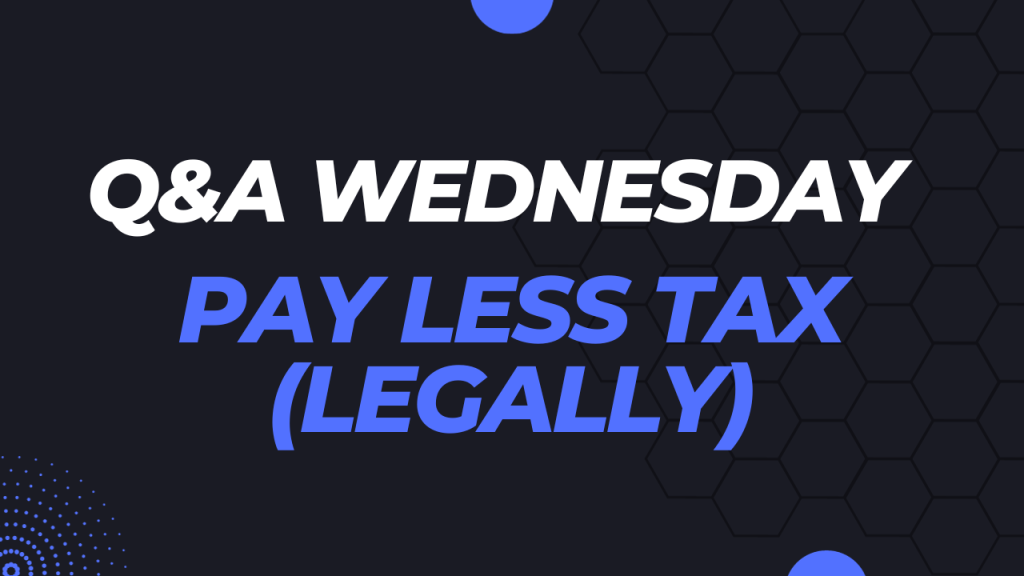Welcome to Q & A Wednesday on Millionaire Habits, where I answer one of your weekly questions for everyone’s benefit. Have a question?
Reply to this email, and I’ll consider it for a future email.
💡 Question: “Tax season is coming up, and I’m afraid I will be stuck with a big tax bill. Is there any way I can reduce my tax liability legally?”
Taxes suck.
They suck even more when you think about where your money is being spent (usually on pet projects, wasted on nonsense or plain lost).
But if there’s anything constant in this world, it’s taxes.
And death, but let’s not get into that.
The answer is yes, there are pleeeeeeenty of ways to reduce your tax liability legally. And believe it or not, they aren’t difficult!
Ready?
How to Legally Reduce Your Tax Bill
While most of this email applies to those in the U.S., some overlap may exist for those overseas. Be sure to do a little due diligence if you’re not in the U.S. to see if these tricks work for you.
Here’s the scoop: The U.S. government provides many ways to reduce your tax liability. You just gotta know what they are.
For instance, did you know that you can take a home office deduction if you work from home? This includes some of your home utilities like rent, insurance, and Internet access.
Here are several more ways to reduce your tax liability.
Charity: Making charitable contributions supports good causes and provides tax benefits. Donations to qualified charities are deductible. For those who itemize deductions, this can greatly reduce taxable income.
401(k): Contributing to retirement accounts is a highly effective way to reduce taxable income. Contributions to traditional IRAs, 401(k)s, and other similar plans are made with pre-tax dollars, lowering your taxable income for the year. These contributions grow tax-deferred until withdrawal in retirement.
HSAs: HSAs and FSAs offer tax advantages for medical expenses. Contributions are tax-deductible, and withdrawals for qualified medical expenses are tax-free. HSAs have the added benefit of rolling over year to year, allowing for long-term savings.
Tax credits: Tax credits directly reduce the tax owed, dollar-for-dollar. Some notable tax credits include the Earned Income Tax Credit (EITC), Child and Dependent Care Credit, and education credits. These can be more beneficial than deductions as they reduce tax liability, not just taxable income.
Real Estate: Investing in real estate offers numerous tax benefits. Depreciation, mortgage interest, and property tax deductions can significantly reduce taxable income. Additionally, real estate investors can use strategies like 1031 exchanges to defer capital gains taxes.
Education: Investing in education can also offer tax benefits. The Lifetime Learning Credit and the American Opportunity Tax Credit are available for qualifying education expenses. Additionally, student loan interest can be deductible, reducing taxable income.
If you have a “tax guy” or a personal finance advisor, ask if you qualify for tax deductions. If not, here’s how to find a good one.
See you in your inbox on Saturday,
– Steve



